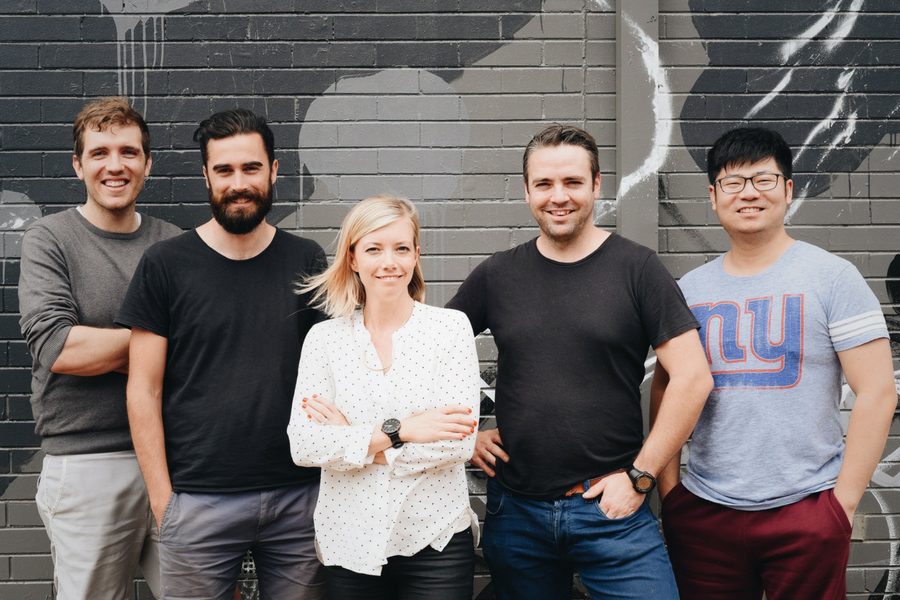Australians love to travel, so it seems fitting that there are so many local startups working in the tourism and travel space. A common problem they have sought to solve is that of discovery: how to find a destination, the best things to do once you get there, and how to meet new people when you’re out on the town.
A part of this problem is the fact that discovery still often relies on the old brochure picked up from the travel agent or LonelyPlanet travel guides, formats which haven’t changed all that much over the last few decades.
Looking to provide an update in 2017 is Alpaca Maps. Founded by Zoe Manderson, Cameron Manderson, and Joseph Hallahan, the startup has launched a platform allowing users to create and share interactive maps which display content-rich routes and itineraries, showcasing things to see and do at each stop.
“Maps are not simply a one dimensional platform for directions, they are the foundation upon which human stories, photos, and tips are layered. Maps should be interactive, taking the reader on the journey,” Zoe Manderson explained.
Between them, Manderson said the Alpaca Maps team has travelled to over 70 countries. Like many avid travellers, Manderson said the team has spent countless hours online trawling through travel blogs, where they realised that there was no simple way for travellers to tell their stories visually.
“We came up with the idea for Alpaca a couple of years ago, but like all good things, it took time to conceptualise,” Manderson said.
“In that time, we continued to travel, we talked to fellow travellers, and started discussions with tourism-related organisations. With each conversation, it became clear to us that there was a real need for an easy to use tool for creating and communicating travel stories.”
Aimed at any kind of content creator in the travel space, from travel bloggers to tour operators, travel agents, publishers, and tourism bodies, Alpaca Maps allows users to trace every step of a trip.
Like Google Maps, it can detail each stop, the distance between each and the mode of transport taken to travel between them; from there, a user can tell the story of each location. Once a map is completed, it can be embedded across websites, through email, or social media.
Alpaca offers a Standard subscription, where maps are free to create; a Premium map subscription comes with support, and access to additional features and customisations. Both Standard and Premium versions are self-service, however Alpaca also offers a paid ‘Valet’ option, a content creation service where its team will curate maps for clients.
Manderson said the startup has seen interest from travel bloggers keen to find new ways to make their content stand out as the number of blogs continues to rise.
However, the potential for use among travel agencies and tourism organisations is interesting, with Manderson saying Alpaca wants to help organisations in the space encourage visitor activity.
“Route maps are inherently important for getting visitors exploring beyond the gateways and showcasing a range of different experiences. It shows them how to get off the beaten path, and provide visitors with the tools to independently explore,” Manderson said.
“We focus on journeys, not directions. Our maps are more than just a way to get from point A to point B, it is about inviting visitors to explore somewhere new, see more along the way, travel further, and stay longer.”
This is also what Manderson said separates Alpaca from Google Maps, which can, in a sense, be seen as a competitor.
“Google Maps do directions very well, but they are not designed for discovery and exploration….[Alpaca maps] are designed to be the foundation for storytelling, specifically honed for travellers and travel-related content,” she said.
Alpaca Maps isn’t the first Australian startup, however, to look at how to improve maps. Focused on the ski resort niche is Snow Explore, allowing resorts themselves, as well as their customers, to capture multiple forms of content and then share it onto a map of a mountain, thereby allowing prospective visitors to get an idea of the mountains and whether they are appropriate for their skill level or the experience they’re after.
Launched late last year, Alpaca Maps is focused on growing awareness of its product within the travel industry. As well as working to get travel bloggers using its maps, Manderson said the startup is in talks with a number of tourism bodies; it will also be exhibiting at next month’s Pause 2017 festival in Melbourne.
Image: the Alpaca Maps team. Source: Supplied.




















Trending
Daily startup news and insights, delivered to your inbox.